Filter by
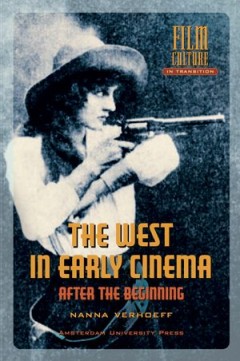
The West in Early Cinema: After the Beginning
Verhoeff investigates the emergence of the western genre, made in the first two decades of cinema (1895-1915). By analyzing many unknown and forgotten films from international archives she traces the relationships between films about the American West, their surrounding films, and other popular media such as photography, painting, (pulp) literature, Wild West Shows and popular ethnography. Thro…
- Edition
- -
- ISBN/ISSN
- 9789053568316
- Collation
- -
- Series Title
- -
- Call Number
- 791.43 VER w
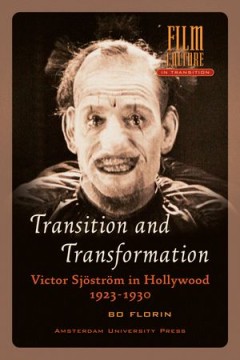
Transition and Transformation
In 1923, Victor Sjöström (1879-1960) got an offer from Goldwyn Pictures to come to Hollywood. This was nothing unusual for a successful European director: - Metro's bring - ing them in by car load - , as Photoplay stated in 1926. At the time, Sjöström was Sweden's most renowned director, who had become world famous for his austere and naturalistic film style. Sjöström stayed in Hollywood …
- Edition
- -
- ISBN/ISSN
- 9789089645043
- Collation
- -
- Series Title
- -
- Call Number
- 791.43 FLO t
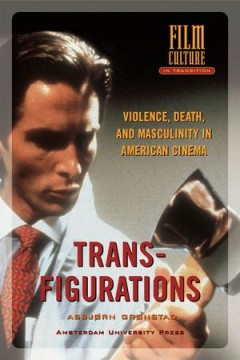
Transfigurations: Violence, Death and Masculinity in American Cinema
In many senses, viewers have cut their teeth on the violence in American cinema: from Anthony Perkins slashing Janet Leigh in the most infamous of shower scenes; to the 1970s masterpieces of Martin Scorsese, Sam Peckinpah and Francis Ford Coppola; to our present-day undertakings in imagining global annihilations through terrorism, war, and alien grudges. Transfigurations brings our cultural obs…
- Edition
- -
- ISBN/ISSN
- 9789089640109
- Collation
- -
- Series Title
- -
- Call Number
- 791.43 GRO t

Techné/Technology: Researching Cinema and Media Technologies - Their Develop…
This fourth title in the series The Key Debates sets out where the term techne comes from, how it unleashed a revolution in thought and how the concept in the midst of the current digital revolution, once again, is influencing the study of film. In addition, the authors - among them André Gaudreault, Geoffrey Wintrop-Young, Martin Lefevbre, Dominique Chateau, Nanna Verhoeff, Andreas Fickers an…
- Edition
- -
- ISBN/ISSN
- 9789089645715
- Collation
- -
- Series Title
- -
- Call Number
- 791.43 OEV t
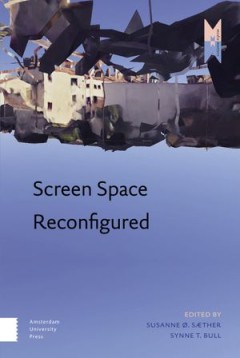
Screen Space Reconfigured
Screen Space Reconfigured is the first edited volume that critically and theoretically examines the many novel renderings of space brought to us by 21st century screens. Exploring key cases such as post-perspectival space, 3D, vertical framing, haptics, and layering, this volume takes stock of emerging forms of screen space and spatialities as they move from the margins to the centre of contemp…
- Edition
- -
- ISBN/ISSN
- 9789048529056
- Collation
- -
- Series Title
- -
- Call Number
- 791.43 SCR s
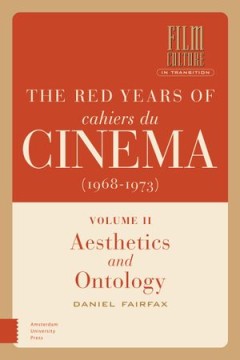
The Red Years of Cahiers du Cinéma (1968-1973), Volume II: Aesthetics and On…
The uprising which shook France in May 1968 also had a revolutionary effect on the country's most prominent film journal. Under editors Jean-Louis Comolli and Jean Narboni, Cahiers du cinéma embarked on a militant turn that would govern the journal's work over the next five years. With a Marxist orientation inspired by the thinking of Louis Althusser, Jacques Lacan and Roland Barthes, the ""re…
- Edition
- -
- ISBN/ISSN
- 9789048543915
- Collation
- -
- Series Title
- -
- Call Number
- 791.43 FAI r
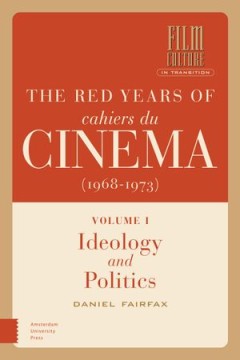
The Red Years of Cahiers du Cinéma (1968-1973), Volume I
The uprising which shook France in May 1968 also had a revolutionary effect on the country's most prominent film journal. Under editors Jean-Louis Comolli and Jean Narboni, Cahiers du cinéma embarked on a militant turn that would govern the journal's work over the next five years. With a Marxist orientation inspired by the thinking of Louis Althusser, Jacques Lacan and Roland Barthes, the "red…
- Edition
- -
- ISBN/ISSN
- 9789048543908
- Collation
- -
- Series Title
- -
- Call Number
- 791.43 FAI r
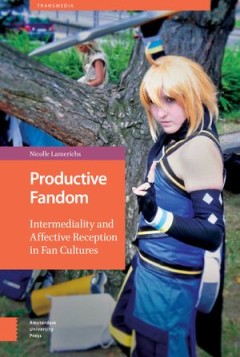
Productive Fandom
This book offers a media ethnography of the digital culture, conventions, and urban spaces associated with fandoms, arguing that fandom is an area of productive, creative, and subversive value.
- Edition
- -
- ISBN/ISSN
- 9789089649386
- Collation
- -
- Series Title
- -
- Call Number
- 791.43 LAM p
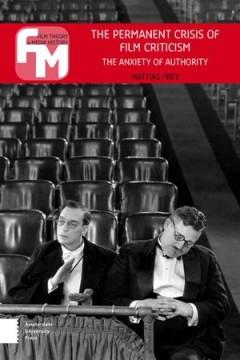
The Permanent Crisis of Film Criticism. The Anxiety of Authority
Film criticism is in crisis. Dwelling on the many film journalists made redundant at newspapers, magazines, and other 'old media' in past years, commentators have voiced existential questions about the purpose and worth of the profession in the age of WordPress blogospheres and proclaimed the 'death of the critic'. Bemoaning the current anarchy of internet amateurs and the lack of authoritative…
- Edition
- -
- ISBN/ISSN
- 9789089647177
- Collation
- -
- Series Title
- -
- Call Number
- 791.43 FRE p
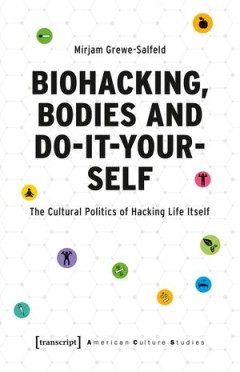
Biohacking, Bodies and Do-It-Yourself : The Cultural Politics of Hacking Life…
From self-help books and nootropics, to self-tracking and home health tests, to the tinkering with technology and biological particles - biohacking brings biology, medicine, and the material foundation of life into the sphere of »do-it-yourself«. This trend has the potential to fundamentally change people's relationship with their bodies and biology but it also creates new cultural narratives…
- Edition
- -
- ISBN/ISSN
- 9783839460047
- Collation
- -
- Series Title
- -
- Call Number
- -
 Computer Science, Information & General Works
Computer Science, Information & General Works  Philosophy & Psychology
Philosophy & Psychology  Religion
Religion  Social Sciences
Social Sciences  Language
Language  Pure Science
Pure Science  Applied Sciences
Applied Sciences  Art & Recreation
Art & Recreation  Literature
Literature  History & Geography
History & Geography